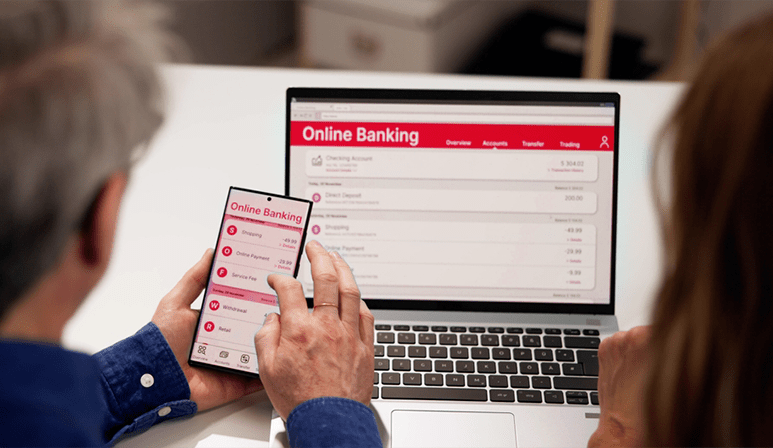- Notifications

We will only notify the newest and revelant news to you.
In the world of international finance, a Swiss bank account for non-residents is often seen as the gold standard for privacy, security, and prestige. Whether you’re an entrepreneur, investor, or frequent traveler, Switzerland offers one of the most stable and well-regulated banking environments in the world.
But what does it take to open a bank account in Switzerland for non-resident individuals? What are the legal requirements, benefits, and the best bank in Switzerland for non-residents? And is it even possible to do it all remotely through a Swiss bank account online for non-residents?
This blog will walk you through everything you need to know in 2025 about opening and maintaining a Swiss bank account as a non-resident.
There are several compelling reasons why individuals around the globe continue to be drawn to Swiss banks:
Switzerland is politically neutral, economically resilient, and maintains strict banking regulations. This makes Swiss banks a haven for global account holders seeking stability.
While Swiss banking no longer guarantees secrecy for tax purposes, it continues to offer strong data privacy and financial confidentiality under Swiss law for lawful clients.
Swiss banks are world-renowned for their private banking and wealth management services, including personalized investment advice and multi-currency accounts.
A Swiss bank account allows non-residents to hold funds in Swiss Francs (CHF) and other major currencies, providing an effective hedge against inflation or currency risk in one’s home country.

Reasons to open a Swiss Bank Account for Non-Residents
Almost anyone can apply for a Swiss bank account for non-residents, including individuals from outside the European Union. However, banks may reject applicants from sanctioned countries or those with legal or compliance concerns. Most Swiss banks are open to:
Each bank has its own risk profile and client acceptance policy, so it’s important to choose the right institution.
Here is a step-by-step overview of how to open a bank account in Switzerland for a non-resident:
Selecting the best bank in Switzerland for non-residents depends on your financial goals. Some well-regarded institutions that cater to international clients include:
Smaller regional banks and fintech platforms also exist for lower-fee options.
Swiss banks typically require the following documentation:
Depending on the bank, additional compliance procedures (KYC, AML checks) may apply.
There are two ways to apply:
Visiting the bank in Switzerland provides a more personalized experience and allows faster identity verification.
Fully remote onboarding is more common at smaller private banks or fintech-affiliated institutions. Tier-1 banks may still require in-person verification, especially for high-value accounts or complex structures. Many banks and private advisors now offer remote account opening via:
This is especially useful for non-residents unable to travel to Switzerland.

Steps to Open a Bank Account in Switzerland for Non-Residents
Once you successfully open an account, here are the major benefits you’ll enjoy:
With a Swiss bank account, you can invest in European and global stock markets, commodities, bonds, and structured products, often with guidance from experienced financial advisors.
Swiss banks allow non-residents to hold accounts in multiple currencies, making them ideal for international business operations or travel.
Most banks provide user-friendly mobile apps and digital platforms, allowing clients to manage their Swiss bank account online for non-residents easily from anywhere in the world.
Switzerland's legal framework is favourable for asset protection, particularly for clients seeking diversification beyond their home jurisdictions.

Benefits of a Swiss Bank Account
Opening a Swiss bank account for non-residents often involves:
While some banks cater to ultra-high-net-worth individuals, others offer more affordable options for international professionals and small business owners.
Absolutely. Swiss banks invest heavily in cybersecurity and encryption to ensure safe digital transactions. Online banking portals are protected by:
When selecting a Swiss bank account online for non-residents, always verify the institution’s reputation and regulatory compliance with FINMA (Swiss Financial Market Supervisory Authority).
Not all Swiss banks permit full remote account opening for non-residents. While top institutions like UBS or Credit Suisse may require in-person onboarding for certain clients, some smaller banks and fintechs offer fully online processes.

Swiss Bank Account Online for Non-Residents
Here’s a quick overview of the top contenders:

Best Bank in Switzerland for Non-Residents
Since the implementation of the Common Reporting Standard (CRS) by the OECD, Swiss banks now report account information to foreign tax authorities in participating countries. As a non-resident, it’s essential to:
Swiss banking no longer offers anonymity for tax evasion purposes — instead, it’s prized for lawful wealth management, confidentiality, and financial security.
While Switzerland is top-tier, consider these alternatives for international banking:
Still, a Swiss bank account for non-residents remains one of the most reliable options for serious investors and global citizens.
Opening a Swiss bank account for non-residents in 2025 is more accessible than ever, with both traditional and online options available. While regulations are tighter and compliance is essential, Switzerland remains a top choice for secure, discreet, and world-class banking.
Whether you're seeking investment diversification, long-term asset protection, or simply global access to top-tier banking services, you can open a bank account in Switzerland for non-resident status with the right preparation and guidance.
Offshore Company Corp stands ready to assist non-resident clients from start to finish, advising on bank selection, handling documentation, and ensuring compliance every step of the way.
Latest news & insights from around the world brought to you by One IBC's experts
We are always proud of being an experienced Financial and Corporate Services provider in the international market. We provide the best and most competitive value to you as valued customers to transform your goals into a solution with a clear action plan. Our Solution, Your Success.